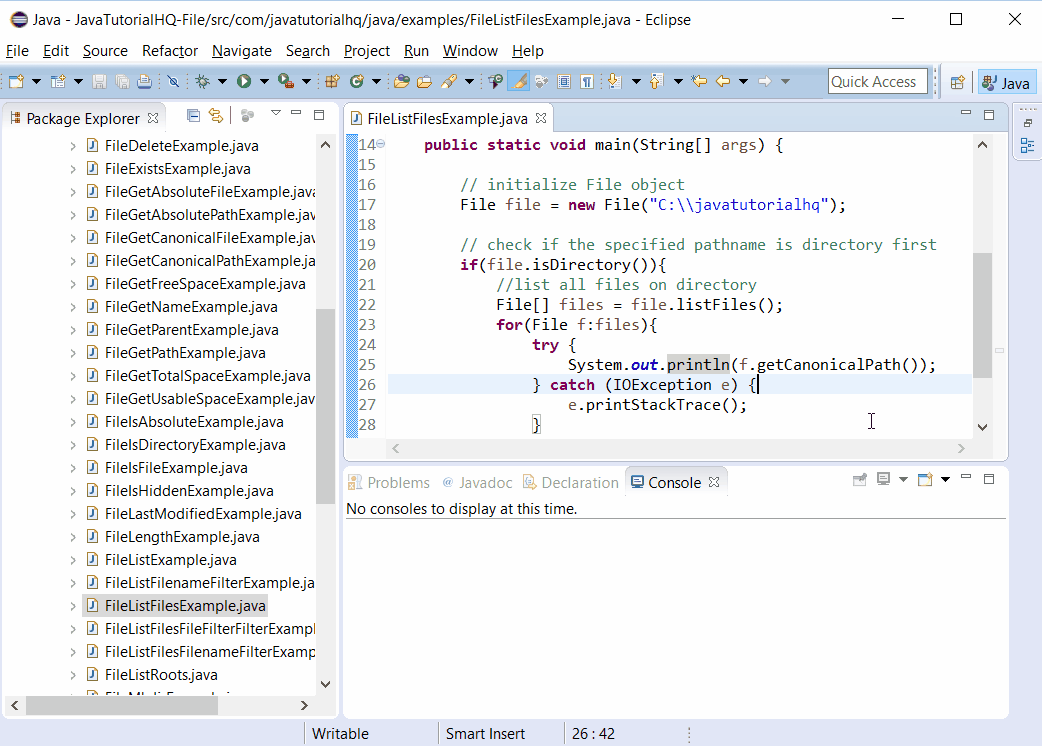java.io.File listFiles()
Description
If this abstract pathname does not denote a directory, then this method returns null. Otherwise an array of File objects is returned, one for each file or directory in the directory. Pathnames denoting the directory itself and the directory’s parent directory are not included in the result. Each resulting abstract pathname is constructed from this abstract pathname using the File(File, String) constructor. Therefore if this pathname is absolute then each resulting pathname is absolute; if this pathname is relative then each resulting pathname will be relative to the same directory.
There is no guarantee that the name strings in the resulting array will appear in any specific order; they are not, in particular, guaranteed to appear in alphabetical order.
Note that the Files class defines the newDirectoryStream method to open a directory and iterate over the names of the files in the directory. This may use less resources when working with very large directories.
Throws:
SecurityException – If a security manager exists and its SecurityManager.checkRead(String) method denies read access to the directory
Method Syntax
public File[] listFiles()
Method Argument
| Data Type | Parameter | Description |
|---|---|---|
| N/A | N/A | N/A |
Method Returns
This method returns an array of abstract pathnames denoting the files and directories in the directory denoted by this abstract pathname. The array will be empty if the directory is empty. Returns null if this abstract pathname does not denote a directory, or if an I/O error occurs.
Compatibility
Requires Java 1.2 and up
Java File listFiles() Example
Below is a java code demonstrates the use of listFiles() method of File class. The example presented might be simple however it shows the behaviour of the listFiles() method of File class. Because the list() method returns an array of String the denotes the filenames inside the directory if and only if the abstract pathname denotes directory, thus we have first put a check if the file is a directory or not. It wouldn’t make sense to just blindly list down the filenames without making sure that the pathname is a directory because the returned value would be null. Make sure to have it checked out to avoid unnecessary issues in using this method.
package com.javatutorialhq.java.examples;
import java.io.File;
import java.io.IOException;
/*
* This example source code demonstrates the use of
* listFiles() method of File class.
*
*/
public class FileListFilesExample {
public static void main(String[] args) {
// initialize File object
File file = new File("C:javatutorialhq");
// check if the specified pathname is directory first
if(file.isDirectory()){
//list all files on directory
File[] files = file.listFiles();
for(File f:files){
try {
System.out.println(f.getCanonicalPath());
} catch (IOException e) {
e.printStackTrace();
}
}
}
}
}

